Procedures of the Standing Committee of the National Assembly for reviewing and providing opinions on bills and draft resolutions of the National Assembly of Vietnam
Below are the procedures of the Standing Committee of the National Assembly for reviewing and providing opinions on bills and draft resolutions of the National Assembly of Vietnam.
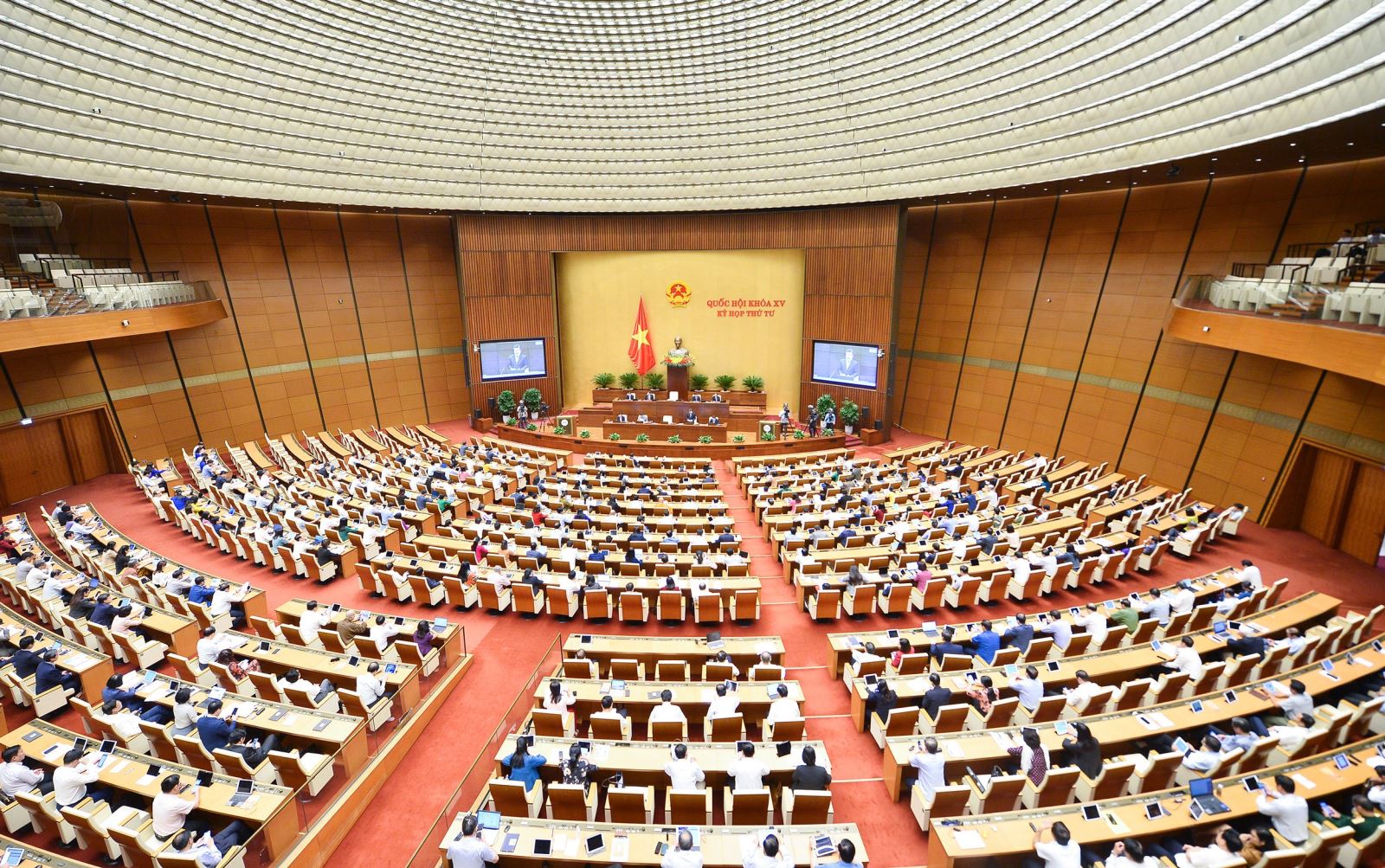
Procedures of the Standing Committee of the National Assembly for reviewing and providing opinions on bills and draft resolutions of the National Assembly of Vietnam (Image from the Internet)
1. Procedures of the Standing Committee of the National Assembly for Reviewing and Providing Opinions on bills and Draft Resolutions of the National Assembly
The procedures of the Standing Committee of the National Assembly for reviewing and providing opinions on bills and draft resolutions of the National Assembly are outlined in Article 71 of the Law on Promulgation of legislative documents 2015 as follows:
-
Depending on the nature and content of the bill or draft resolution of the National Assembly, the Standing Committee of the National Assembly may review and provide opinions once or multiple times.
-
The Standing Committee of the National Assembly reviews and provides opinions according to the following order:
-
A representative of the body, organization, or National Assembly delegate presenting the project or draft explains the basic content of the project or draft.
-
A Government representative gives opinions on the project or draft not submitted by the Government;
-
A representative of the lead verification body presents the verification report and proposes issues for the National Assembly to discuss;
-
Representatives of the agencies, organizations, and individuals attending the session express their opinions;
-
The Standing Committee of the National Assembly discusses;
-
The chairperson of the session concludes.
-
2. Procedures for considering approval bills and Draft Resolutions after two meetings of the National Assembly of Vietnam
According to Article 75 of the Law on Promulgation of legislative documents 2015 (amended in 2020), the National Assembly considers for approval bills and draft resolutions at two meetings following this order:
-
At the first session, the review and discussion of the project or draft are carried out according to the provisions in clauses 1, 2, 3, 4, 5, and 6 of Article 74 of the Law on Promulgation of legislative documents 2015 (amended in 2020);
-
During the time between the two meetings, the Standing Committee of the National Assembly directs and organizes the research, explanation, reception, and revision of the draft in the following order:
-
The standing body of the lead verification body chairs, coordinates with presenting agencies, organizations, or National Assembly delegates, the standing body of the Law Committee, the Ministry of Justice, and related agencies to study, explain, receive, revise the draft, and prepare a draft report on the explanations, receptions, and revisions.
-
Regarding new policies proposed by National Assembly delegates for inclusion in the draft, if necessary, at the request of the Standing Committee of the National Assembly, the presenting body or delegate organizes an impact assessment of the policy to report to the National Assembly;
-
The presenting agency, organization, or National Assembly delegate gives written opinions on the contents of the explanations, receptions, and revisions of the draft, specifying any differing views with the draft report on explanations, receptions, and revisions and proposing resolutions to report to the Standing Committee of the National Assembly;
-
The Standing Committee of the National Assembly reviews, discusses the draft report on explanations, receptions, and revisions, and the revised draft;
-
The Standing Committee of the National Assembly decides on holding a meeting of specialized National Assembly delegates to discuss and provide opinions on important issues and major differing points of the project or draft; sending the revised draft and draft report on explanations, receptions, and revisions to National Assembly delegations, the Ethnic Council, and the Committees of the National Assembly at least 45 days before the opening of the session.
-
National Assembly delegations, the standing body of the Ethnic Council, and the standing bodies of the Committees of the National Assembly are responsible for organizing discussions, gathering opinions, and sending a comprehensive report of the opinions to the lead verification body at least 20 days before the opening of the session;
-
The standing body of the lead verification body compiles the opinions of the National Assembly delegates, delegations, the Ethnic Council, and the Committees of the National Assembly; chairs, coordinates with the presenting agencies, organizations, or delegates, the standing body of the Law Committee, the Ministry of Justice to study, explain, receive, revise the draft, and perfect the draft report on explanations, receptions, and revisions to present to the Standing Committee of the National Assembly;
-
-
At the second session:
-
The Standing Committee of the National Assembly reports to the National Assembly on the explanations, receptions, and revisions of the draft based on the opinions of National Assembly delegates from the previous session.
-
If the presenting body, organization, or delegate, or the Government disagrees with the draft not submitted by the Government, it reports for the National Assembly to consider and decide;
-
The National Assembly discusses the remaining differing opinions;
-
The Secretary-General of the National Assembly compiles the opinions of National Assembly delegates, reports them to the Standing Committee of the National Assembly, and sends them to the lead verification body, the presenting agencies, organizations, or delegates;
-
The Standing Committee of the National Assembly directs and organizes the research, explanation, reception, and revision of the draft;
-
At least seven days before the National Assembly votes for passage, the draft is sent to the Standing body of the Law Committee for technical review and perfection.
-
The standing body of the Law Committee chairs, coordinates with the standing body of the lead verification body, and the presenting representatives of agencies, organizations, or delegates and related agencies for technical review to ensure the constitutionality, legality, and consistency of the draft with the legal system;
-
The Standing Committee of the National Assembly reports to the National Assembly on the explanations, receptions, and revisions of the draft;
-
The National Assembly votes to pass the draft. If there are differing opinions on the draft, the National Assembly votes on the differing points as proposed by the Standing Committee of the National Assembly before voting to pass the draft;
-
The Chairperson of the National Assembly signs to certify the law or resolution of the National Assembly.
-
-
If the draft is not passed or is only partially passed, the National Assembly reviews and decides whether to resubmit for consideration or passages at the next session as proposed by the Standing Committee of the National Assembly.
- Cases of land rent exemption and reduction under the latest regulations in Vietnam
- Economic infrastructure and social infrastructure system in Thu Duc City, Ho Chi Minh City
- Regulations on ordination with foreign elements in religious organizations in Vietnam
- Increase land compensation prices in Vietnam from January 1, 2026
- Determination of land compensation levels for damage during land requisition process in Vietnam
- Who is permitted to purchase social housing according to latest regulations in Vietnam?
-
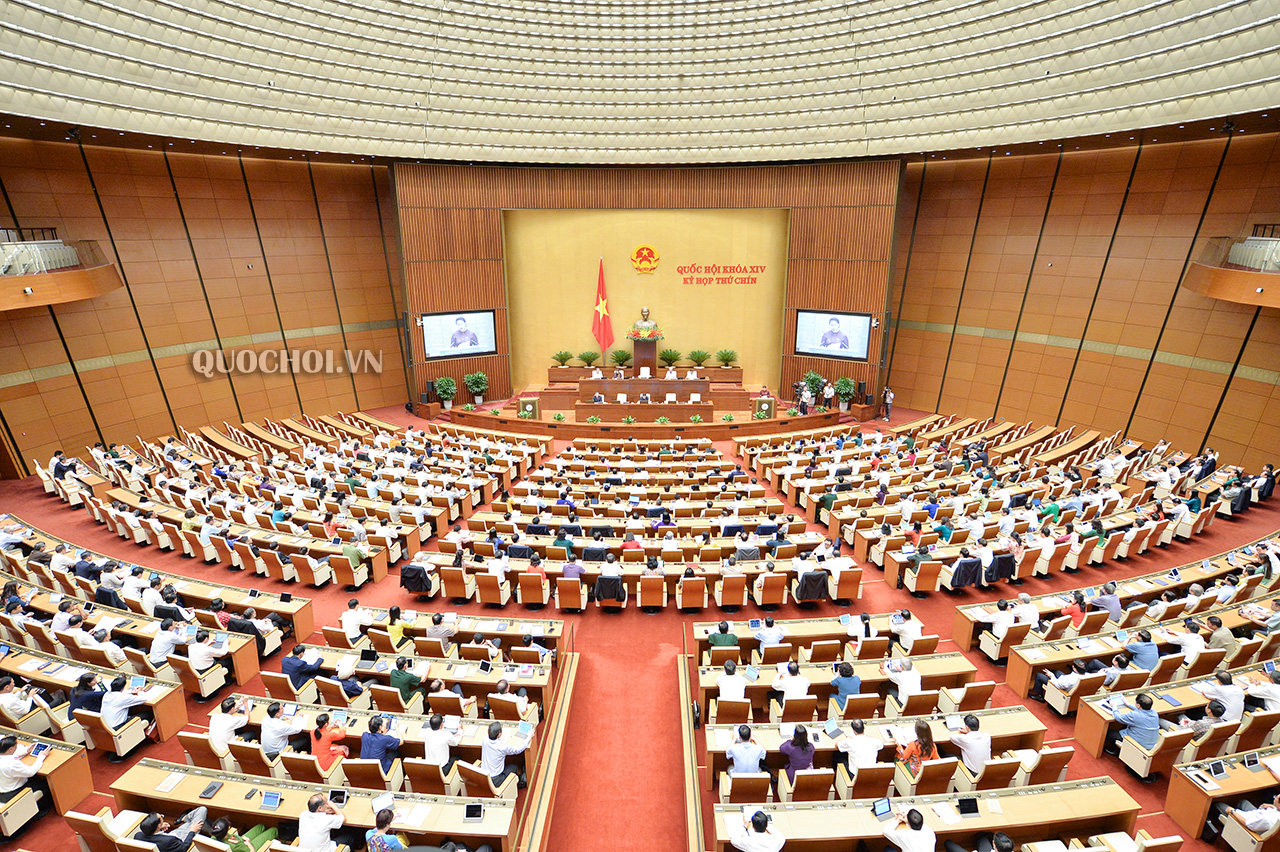
- Rights and responsibilities of National Assembly ...
- 18:14, 04/03/2025
-
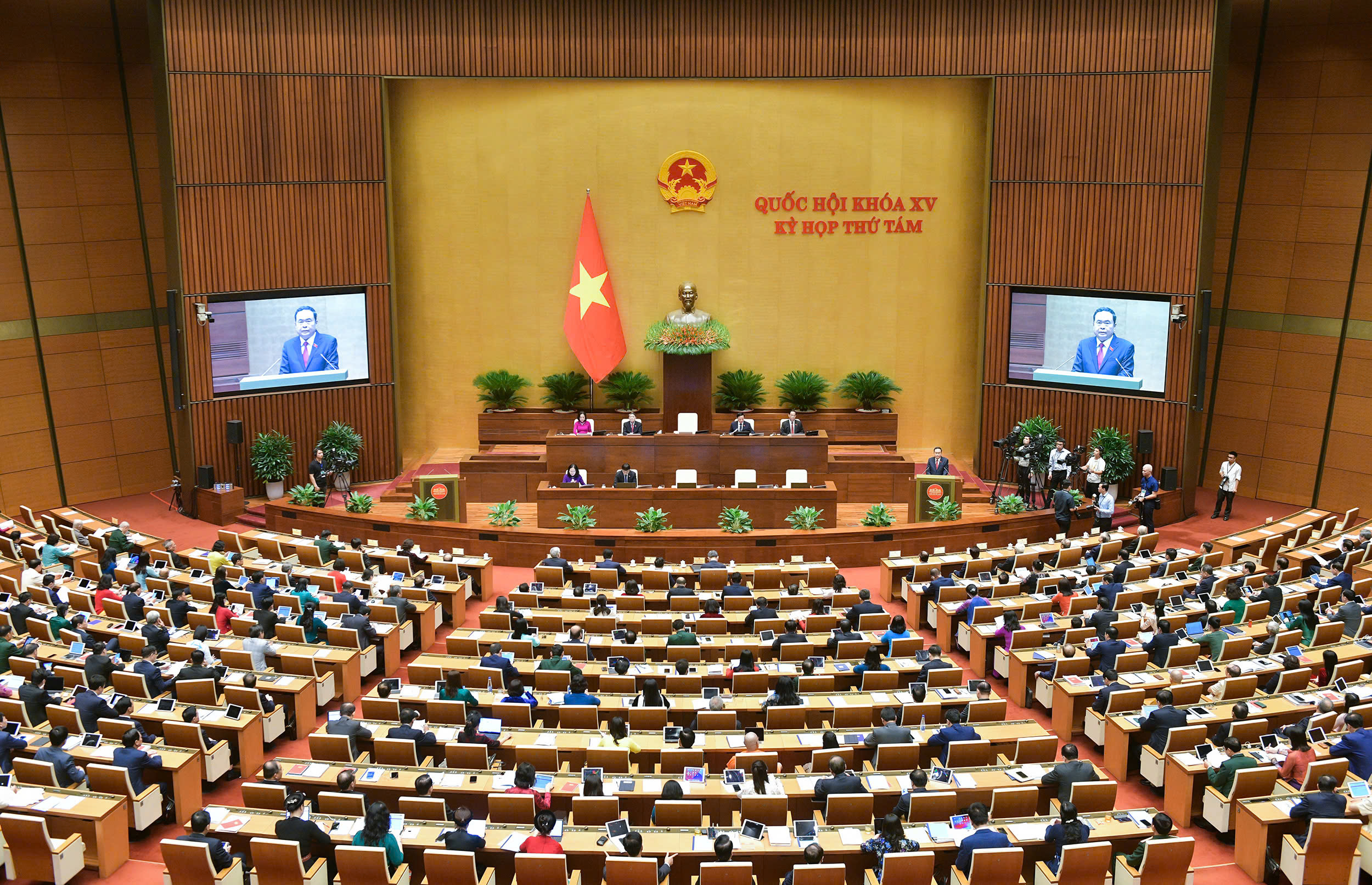
- Procedures of reviewing and approving draft Laws ...
- 11:35, 28/02/2025
-
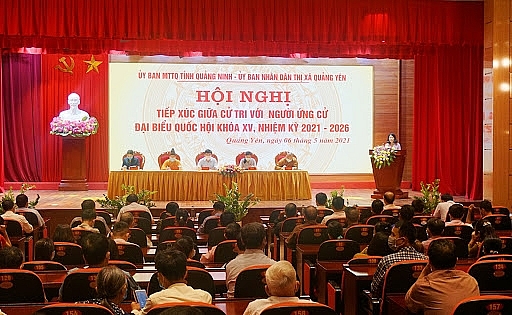
- Joint Resolution 72 on voter contact of National ...
- 15:40, 27/02/2025
-
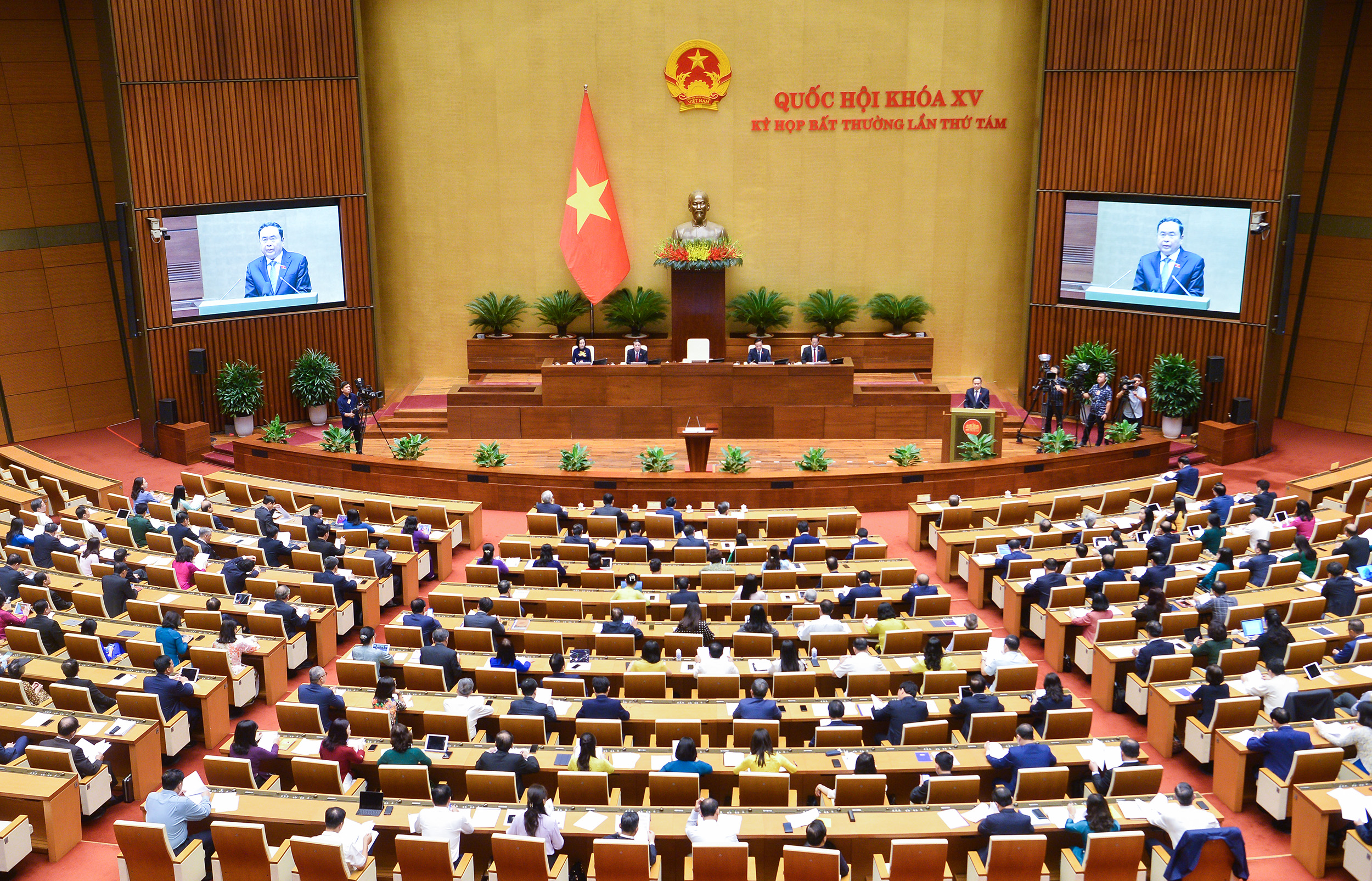
- Resolution 178 on the organization of the agencies ...
- 09:04, 25/02/2025
-
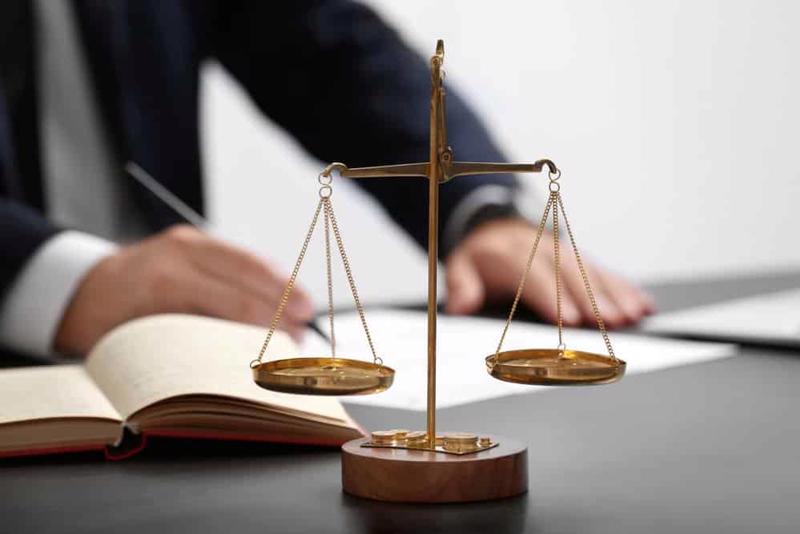
- The National Assembly of Vietnam has passed 02 ...
- 16:09, 24/02/2025
-

- Notable new policies of Vietnam effective as of ...
- 16:26, 11/04/2025
-
.Medium.png)
- Notable documents of Vietnam in the previous week ...
- 16:21, 11/04/2025
-
.Medium.png)
- Notable documents of Vietnam in the previous week ...
- 16:11, 02/04/2025
-
.Medium.png)
- Notable new policies of Vietnam to be effective ...
- 16:04, 02/04/2025
-
.Medium.png)
- Notable new policies of Vietnam effective from ...
- 14:51, 21/03/2025

 Article table of contents
Article table of contents
